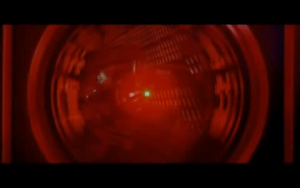D&D is whatever I SAY it is!

In all seriousness, each edition change has had an extreme impact on the game, with the possible exception of AD&D 1E to AD&D 2E (which just had a large impact). In reality, most of them could easily be considered their own game, rather than an edition change of an existing game.
OD&D and B/X are the same game, with the latter being simply a refinement of the rules for easier introduction.
BECMI was originally just an introduction (levels 1-3) that would teach new players game concepts so they can go play either OD&D or AD&D. However, the concepts introduced were popular enough that it expanded into its own edition (and even its own setting of Mystara).
AD&D 1E and 2E were basically the same game with a bit of mechanical clean up between them. IME many groups used a mixture of rules from both editions together to customize it.
3E and 4E are completely different from anything before, and both created edition wars because of it. I think that 3E was a necessary change, correcting a LOT of the problems AD&D suffered from, but they introduced new ones. I think 4E was a descent system, but using it under the D&D brand to was too divisive due to the radical differences. Several people I know feel that 4E's failure was less a mechanical issue, and more a PR issue, with it being more successful under a different name.
5E is different, in that it actually draws AD&D, 3E, and 4E together. It has many of the best mechanics of 3E and 4E, while keeping the simplicity and enjoyment of AD&D's DM intensive rule structure. Groups can focus on various aspects they prefer, and the system if greatly customizable, with homebrew, houserules, and 3PP easily adapted into the game. This is the only edition that doesn't actually stand on its own, but rather has built itself upon the success of prior editions.

